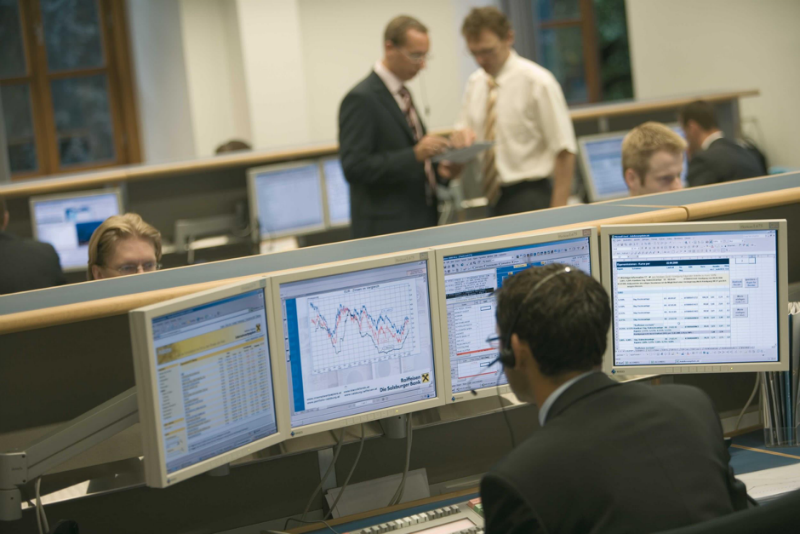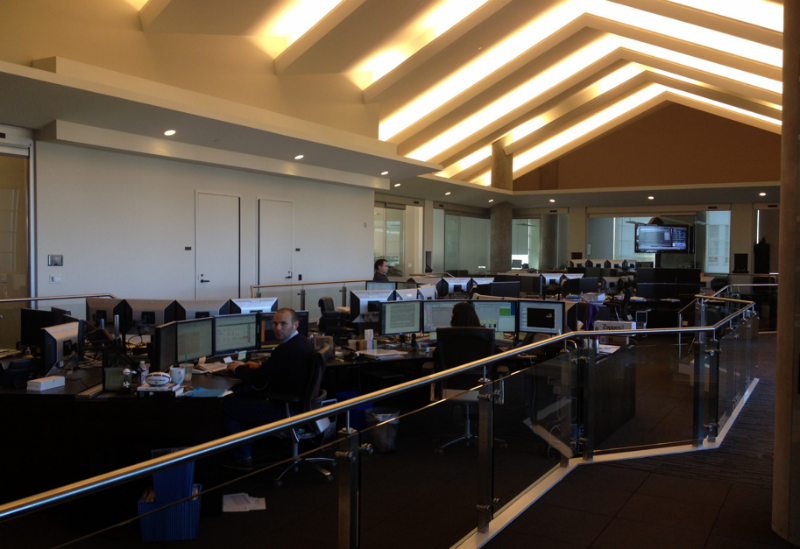A working day on Wall Street: what hedge fund financial analysts actually do

There is an opinion that in the sphere of finance people work only for the sake of money, and there are really a lot of such, but without a love of their work, being an analyst of an investment fund will not work for long. The indifferent are looking for any way to high salaries and leave the office as early as possible.
Compared to investment banks, working in a hedge fund is less stressful, working less, weekends almost always remain weekends. According to analysts, published on the resource Quora, despite the expected sacrifices, work in the hedge fund is more often more interesting and less affected by the corporate bureaucracy, employees get more freedom.
')
We have already studied the conditions in which financiers work, and now let's see how the working day of Wall Street analysts actually works.
The responsibilities of the analyst of an investment fund always include:
- Work in a team responsible for developing strategies for system trading.
- Developing strategies for large teams with a mixed method of system and discretionary trading.
- Assistance to traders in testing trading ideas, which will later be used in strategies with their understanding of the market.
- Help traders in building strategies.
Former hedge fund manager Vladimir Novakovski shared his experience about the work of analysts at Quora.
For each case, characterized by different levels of stress and salary, respectively. Much time is spent on programming. Relying only on engineers from the development team is not worth it. In small teams there is always not enough time. Compared with large banks or institutions, it seems that it will not be possible to analyze all possible directions in time.
In hedge funds, analysts or quanta are respected. Companies generate large incomes based on their ideas, or at least they understand that they can earn with their help, so they are taken seriously by the work of these employees.

It is very interesting to see how your ideas work in the markets. Most of the time is spent on data and empirical research, less often on theoretical models.
Sometimes you have to do not very interesting things, for example, to make tables in Excel. But, compared to investment banks, there are fewer bureaucracies in the funds and shorter working hours.
On the basis of Quora surveys and descriptions from experienced professionals, you can make a rough version of the working day of the fund analyst.
Working day
Morning
Wake up and immediately read the latest news on the Internet on the New York Times, Wall Street Journal, Financial Times and CNBC, see information from analysts. Scroll through hundreds of letters in the mail, pay attention to messages from investment banks. There is never enough time for everything - the rest is read at work. Depending on the location of the office, someone does a morning jog, and someone has to go to work right away in order to make it through traffic jams.
In the office, the day begins with the inclusion of Bloomberg terminals and a quick breakfast. To begin with, the analyst quickly checks everything that caught his attention while checking the news at home. Then you need to read a few analytical reports and many more articles from the news feed, Google News, Bloomberg and Facebook.
Sometimes it is useful to discuss the news with your colleagues, and then pay close attention to the price movement when trading in the market opens, especially sharp jumps occur at the very beginning of trading. After opening the day in the markets there is time to read the remaining mail, have breakfast, view several reports and search for useful information on the network.

Next, the analyst most often conducts a qualitative analysis of various indicators, IPO forecasts, quarterly reports, watching presentations, interviews with company directors, press releases, reports, JP Morgan or Bank of America. The task of the analyst is to assess what is happening in the market, the search for oddities and illogical scenarios that can lead to a good opportunity to earn.
When the qualitative analysis is completed, the specialist proceeds to a quantitative assessment - the construction or updating of models. At this stage, you need to determine the main indicators of growth and add your own assumptions, supported by facts. You need to check everything very carefully to ensure security with a margin for potential transactions. The analyst has many tools at his disposal, for example, for discounting or simulating asset allocation.
After analysis, you need to clarify the resulting figures and investment calculations, call colleagues from an investment bank, an expert or a friend in the industry. There is no room for error, everything must either exactly converge or not.
Until the middle of the day, the hedge fund employee remains to carry out the plan. If important stocks begin to noticeably change in price, then it is imperative to follow them closely. You should also contact the manager and find out what else you need to work on, ask for opinions about the analysis that has just been carried out. In the remaining time, you have to read a lot and continue to analyze: open data and requests, transcripts of records, presentations, data analysis, forecasts.
Good ideas can come precisely in the process of reading, rather than constant monitoring of the quotes. Depending on the workload and responsibilities, the analyst can build many mathematical models or give them to someone of lower rank and focus on broader things. It is very useful to take short breaks every hour in order to stay focused throughout the day and not make mistakes in the calculations.
Noon
At noon, again monitoring stocks, with a lunch break. After eating, the analyst expects a new wave of news about the market, sometimes meetings, and many more texts - reports and documents on the industry. It is important to check how the competitors are doing, read their sites and reports.
Finally, in the late afternoon there is an opportunity to go to the gym, get a physical activity for an hour and a half and take a break from finances. After the gym, work does not end - new data, information gathering, reports, project evaluation with other analysts, meetings, and other such things. There are meetings with colleagues from other organizations and banks, during communication you can get valuable information, the main thing is not to reveal any secret of your company, but otherwise the exchange of rumors is useful.

Evening
The analyst’s working day ends at about 19: 00-20: 00, someone continues to work at home, but if a person has a family and he wants to maintain his emotional state in the norm, he tries to maintain a balance between life and work, to prioritize correctly .
The remaining time is spent for dinner, chatting with family and friends, sometimes for reading or entertainment. In rare cases, instead of watching the show and reading a good book, you have to analyze new reports and watch interviews with company executives to be prepared for what may happen the next day. Some even manage to find time for their hobby and develop not only on weekends.
You have to go to bed pretty early - the morning of the hedge fund worker starts at around 5:00. Reading before bed is bad, but not everyone can resist. The next day, everything is repeated.
In some firms, the behavior of employees is quite loyal, more often these are large organizations where long-term relationships are valued and work on results than unscrupulous employees can use. There are other companies where you are turned into “slaves” for the sake of a common cause, such organizations are not suitable for everyone, but there are people who like this atmosphere.
Other materials on the topic from ITinvest :
- IT-vacancies from ITinvest ( Matrix trading system administrator, QORT administrator , lead programmer );
- Online Trading: How to become a developer of systems for trading on the exchange
- What a programmer should be able to get a job in finance
- How to recognize a person's emotions in his face: A test for employees of financial companies
- The conditions under which the financiers work: A tour of the offices of Goldman Sachs and Bloomberg
Source: https://habr.com/ru/post/304248/
All Articles